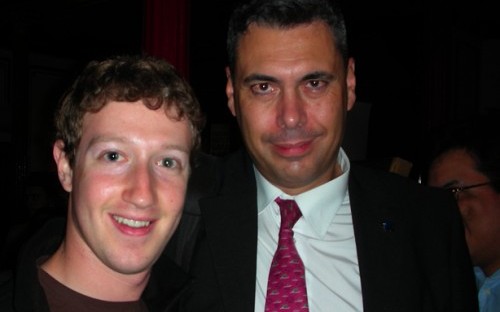How badly were investors stitched up by Wall Street when Facebook went public?
Answer: insanely badly, according to Eric Bleeker at investor news site The Motley Fool. His post mortem of wrongdoing by the US investment banks that underwrote the IPO makes for gruesome reading: “Everybody -- all of America who bought in -- got robbed by Wall Street,” he says.
After Facebook’s share price quickly began to tumble after trading opened, underwriters JP Morgan Chase and Gokdman Sachs were lending out shares to be sold short.
While Morgan Stanley didn’t short Facebook shares, it made $100m or so profit anyway by selling shares it didn't technically own, but was “overallotted” as part of its role of lead underwiter.
Bleeker writes: “As the IPO increasingly looked ready to crumble and more shares were offered, the investment banks used their army of advisors -- the ones charging clients a 1% fee to keep their cash in a money market fund that yields 0.2% -- to pawn off shares.”
Bloomberg has reported that retail investors are sitting on more than $630 million in losses. Welcome to Wall Street, America. Muppets welcome.
On Business Insider, Adam Piore asks if we’re in another tech bubble. God knows, many would welcome one. As The Onion put it back in 2008... Recession-Plagued Nation Demands New Bubble To Invest In...
But most of the experts Piore interviews think we’re not, for a variety of reasons: Facebook, LinkedIn et al actually make money, and apparently there’s “more information” available about tech firms thanks to private shareholders trading on secondary markets…
However there is pent up demand for tech stocks, which could be dangerous: “Because the market has been slammed by the subprime crisis and the recession, the opportunity to buy into these technologies has been limited. Meanwhile, cash has piled up on the sidelines, and investors are looking for big returns,” writes Piore.
On European tech magazine The Kernel, editor Milo Yiannopoulos warns that Facebook and Mark Zuckerberg wield more control over our personal lives than Rupert Murdoch and News Corp ever have.
“The difference is that while Rupert Murdoch’s empire has been circumscribed by the limits of production and broadcast, Zuckerberg’s is already in your home, on your laptop, at your workstation and even in your back pocket. Facebook has achieved in a few short years what it took Murdoch decades to accomplish – but the implications of Zuckerberg’s power are far more disturbing. News Corp’s power is fragmented; its guiding mission fractured by dissemination down into its various organs. But Facebook moves as one: one site, one service, one giant silo of content and advertising.
“Don’t be misled by arguments that Facebook is “just a platform”: its product is furiously tested to make it as sticky and addictive as possible in order that users can be shown more ads. Except Facebook isn’t an editorial product that helps you make sense of the world, as a newspaper does: it’s a platform host for user-generated garbage.
And Yiannopoulos continues!
“While Zuckerberg talks about making the world open and connected, he is building a content silo that breaks the fundamental principles of the internet. While he talks about making the world social, his product and others like it are leaving their users more dislocated, miserable and alone than ever before. And while he speaks of democratisation and empowerment, what his platform really does is subvert and distort national democracies by rewriting the law around personal data."
BusinessBecause is running a survey asking MBA students whether they think Facebook will be bigger, smaller or gone in ten years. Stay tuned for the results!
Interested in how Facebook got started? Check out our interview with Divya Narendra, one of the site's original founders
RECAPTHA :
0c
fb
a6
c9







